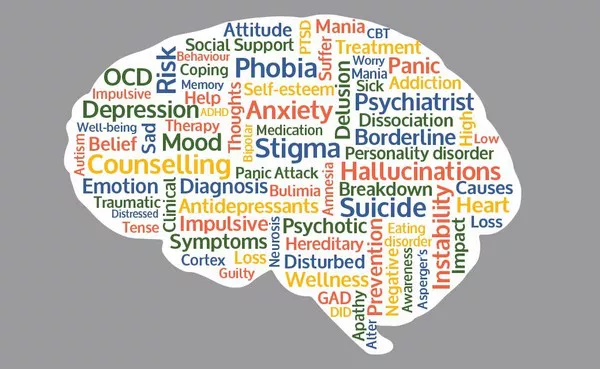A recent study published in Nature Human Behaviour reveals a positive correlation between Internet use and mental health outcomes among adults aged 50 and older across 23 countries. The research highlights the potential of online connectivity to reduce depression and improve overall well-being, providing valuable insights for public health strategies globally.
Mental health issues among older adults are a significant global concern, with approximately 14% of individuals aged 55 and over experiencing conditions such as depression. Mental health encompasses overall well-being, enabling individuals to cope with life’s stresses and contribute to their communities. The Internet has emerged as a crucial social determinant of health, offering access to information, social connections, and entertainment that can positively influence mental health. However, existing research often focuses on single countries, neglecting cross-national differences and the interplay between Internet use and genetic predispositions in affecting mental health outcomes.
The study analyzed data from six longitudinal aging cohorts: the Health and Retirement Study (HRS) in the USA, the English Longitudinal Study of Ageing (ELSA), the China Health and Retirement Longitudinal Study (CHARLS), the Mexican Health and Aging Study (MHAS), the Survey of Health, Ageing and Retirement in Europe (SHARE), and the Brazilian Longitudinal Study of Aging (ELSI). These cohorts included adults aged 50 and older, with data collected between 2008 and 2021. Participants were selected based on their Internet use information and at least two follow-up data waves.
Researchers focused on individuals with complete data concerning Internet use, mental health outcomes (depressive symptoms and life satisfaction), and relevant covariates. Those with memory-related diseases or psychological disorders at baseline were excluded. Internet use was assessed through questionnaires, capturing both the frequency and cumulative use across different cohorts.
The study involved 87,559 participants and 298,199 observations, with a median follow-up period of six years. The prevalence of Internet use among those aged 50 and older varied significantly, from 2.2% in China to 84.8% in Denmark. Results indicated that baseline Internet use was associated with improved mental health outcomes, including fewer depressive symptoms (pooled average marginal effect: -0.09), higher life satisfaction (pooled average marginal effect: 0.07), and better self-reported health (pooled average marginal effect: 0.15).
These positive associations were consistent across most countries, although their strength varied based on factors such as income inequality and digital skills. Subpopulation analyses revealed that Internet use was particularly beneficial for individuals aged 65 and older, those with disabilities, and individuals with lower wealth. In England and the USA, researchers assessed genetic risk interactions, finding that Internet use had beneficial effects across all genetic risk categories for depressive symptoms and self-reported health.
While the study underscores the mental health benefits of Internet use, it also acknowledges potential downsides, such as excessive screen time and risks associated with online interactions, including cyberbullying and misinformation. This highlights the need for balanced, purpose-driven strategies for Internet use.
Moreover, the analysis found that higher frequency and cumulative Internet use were linked to improved mental health outcomes. Each additional wave of Internet use corresponded with reductions in depressive symptoms and enhancements in life satisfaction and self-reported health. Sensitivity analyses confirmed the robustness of these findings, indicating a bidirectional relationship between Internet use and mental health.
Conclusion
In conclusion, the study demonstrates that Internet use is associated with improved mental health outcomes for older adults across 23 countries, including reduced depressive symptoms and increased life satisfaction. However, the protective effects vary by country and subpopulation, influenced by genetic, sociodemographic, and behavioral factors.
The findings emphasize the need for tailored mental health interventions that address variations in digital skills and access among different groups. Promoting greater frequency and sustained use of the Internet could serve as an effective strategy for enhancing mental health, particularly in regions with limited access to traditional mental health services. Further research is warranted to explore the potential risks of excessive Internet use and to refine strategies that maximize its mental health benefits.
Related Topics:
-
Research Shows That Nature Is Beneficial For Children’S Mental Health
-
Singer Amy Grant Emphasizes The Need For Support To Combat Women’S Heart Disease
-
Research Emphasizes That Air Pollution Is A Key Environmental Factor At Risk For Autism


